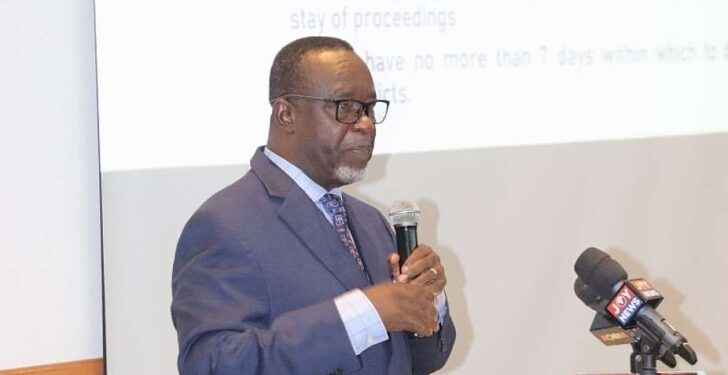According to a report by TV3 on Thursday 11 September, 2025, Justice Baffoe-Bonnie has revealed plans to create dedicated courts focused on cases involving galamsey (illegal small-scale mining), environmental crimes, and narcotics.
The initiative, first reported by TV3Gh, seeks to streamline the judicial process for offenses that pose significant risks to public health, natural ecosystems, and national security. By establishing courts solely tasked with these matters, the judiciary aims to ensure swifter justice and more effective enforcement of environmental and drug laws.
Justice Baffoe-Bonnie highlighted the urgent need for targeted legal intervention, noting the devastating impact of galamsey activities on Ghana’s natural resources. Water bodies across mining regions have become polluted with silt and toxic chemicals, while deforestation and habitat loss have endangered wildlife and disrupted the livelihoods of local communities.
“These specialized courts will not only expedite trials but also help raise awareness about the importance of environmental protection and the consequences of illegal activities,” Justice Baffoe-Bonnie stated.
In addition to environmental crimes, the courts will address the increasing incidence of narcotics-related offenses. Authorities have observed growing links between illegal mining and drug trafficking, compounding the challenge for law enforcement and the judiciary.
By concentrating resources and expertise within these new courts, the judiciary hopes to enhance the legal system’s capacity to handle complex and interrelated criminal activities. Justice Baffoe-Bonnie emphasized that properly trained judges and legal staff will be essential for the success of this initiative. Plans are underway to provide rigorous training in environmental and narcotics law.
The proposal has garnered widespread support from environmental advocates, community leaders, and legal professionals, many of whom have long called for a more robust judicial response to ecological and drug-related crimes.
Stakeholders argue that beyond punishment, the new courts could play a key role in encouraging rehabilitation, restoration efforts, and long-term sustainability through community engagement and education.










Discussion about this post